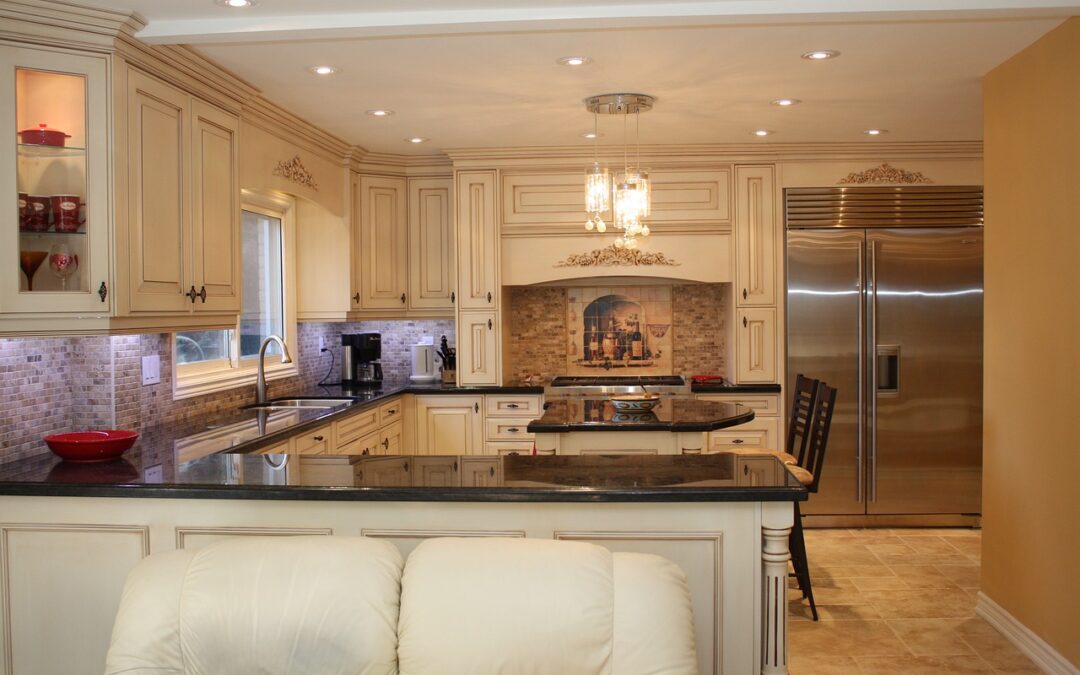Remodeling your kitchen is an exciting project, but the task is often quite complex. Depending on the scope of your project, a kitchen remodel can take anywhere from a few weeks to several months. You’ll encounter several variables that dramatically change your overall timeline. In this post, we discuss what you can expect at each stage.
Design and Budget

Image by Jason Briscoe is licensed with Unsplash License
The first step in any remodeling project is the design phase. This is when you’ll browse books, magazines, and the internet for inspiration. You’ll visit home improvement stores, evaluate appliances and cabinets, collect paint and counter samples, and generally decide what you want.
The next step involves checking your budget to see what you can afford. Designating 10% to 20% of your budget for unexpected costs is best. This step takes as long as you need to come up with funds for a design that meets your needs.
Hiring a Contractor
Unless you’re attempting a DIY remodel, which is usually exceptionally time-consuming, you’ll need to hire a contractor to manage the project. Don’t expect the best contractors to have immediate availability. You’ll often have to wait four to eight months to get on a good contractor’s schedule.
Getting Building Permits
Your contractor will handle this step and complete the proper applications for the necessary building permits. The timeline for getting the appropriate permitting varies greatly by location and the type of project. You may get your permits in just a few days or wait as long as six weeks. Often, you’ll find you need to revise your plan to obtain a permit, which may add another few weeks to the process.
Demolition
Demolishing the existing kitchen is one of the quickest steps in the process, taking only about a week. If you’re interested in doing some of the work yourself to trim down your expenses, demolition is the easiest part to tackle. If you haven’t already cleared out your kitchen, you’ll need to remove everything in the space for the project to reach this phase. You’ll also need to set up your temporary kitchen from this step onward. Your microwave, slow cooker, and other small appliances will become some of your best tools for the next weeks or months.
Rough Construction
The rough construction phase addresses any structural changes you’re making, such as replacing windows, building walls, and creating doorways. This part of the project usually takes two to four weeks, depending on the extent of the work. Once you’ve framed out any new walls, you can have contractors rough in the plumbing, electrical, and HVAC as needed. Rough-in work can usually be finished in three to five days. However, you must schedule professionals to complete these jobs, which can lead to delays. Bear in mind that if you’re not changing your kitchen’s overall structure, you may skip this stage entirely.
Drywall, Flooring, and Paint
Hanging and finishing drywall is the next stage if you’ve had new walls constructed. This should take about a week. You can usually finish the painting in a day if you’re working with a professional. If you’d prefer to paint yourself, you can certainly save some money at this point, but you may need to allow more time for the task. Once you’ve finished the walls, you can install your kitchen flooring. This usually takes two to three days.
Flooring usually goes in before cabinetry. However, if you’re having a laminate or luxury vinyl floor installed, you may need to adjust your timeline and schedule this task after the cabinets are in place.
Cabinets and Countertops
Installing cabinets and countertops is one of the most exciting parts of the construction process because this step really allows you to see the new kitchen taking shape. It’s important to order these items early in the construction process to ensure they arrive on time. Some materials can take weeks or months to arrive, depending on their availability. A good contractor can help you navigate the complexities of scheduling this part of the process.
Installing new cabinetry usually takes three to five days. Installing countertops is more time-consuming, as you may need to have them cut to accommodate sinks and other fixtures. Plan for an additional two to four weeks to get your counters in.
Appliances, Hardware, and Fixtures
One of the final stages in the construction process is installing your appliances, hardware, and other fixtures. If the appliances are already on hand, you can usually complete the actual installation in just a few hours. You may also need to complete the following tasks:
- Installing the sink and faucets.
- Connecting light switches and outlets.
- Installing lighting.
- Covering ductwork.
- Attaching knobs and pulls to cabinetry.
While none of these tasks takes a particularly long time, you may need to have multiple contractors complete them. For example, a plumber will handle your sink, while an electrician will address the lighting. Expect this final stage to take one to two weeks as things are wrapping up throughout your new kitchen space.
Cleanup and Move-In
When the remodel is finally complete, you’ll have one last chance to review the finished product. Take your time and evaluate every aspect of the new construction. Though you’re undoubtedly anxious to wrap up the project, this is the time to request any changes you want. You may find that an appliance isn’t perfectly level or the painters missed a spot. Request these finishing touches now, as you may not have an opportunity later.
Once the project is complete, all that’s left is for the contractors to clean up so you can begin to move back in. Allow one to two more days to get everything situated in your new kitchen.
If you’re dreaming of a home designed exactly to your specifications from day one, we can help. Contact Steiner Homes and start exploring your options for a custom-built home with the kitchen you’ve always dreamed of in place at the very beginning. We offer a variety of layouts and options to help you create the ideal living space for your family’s needs.

